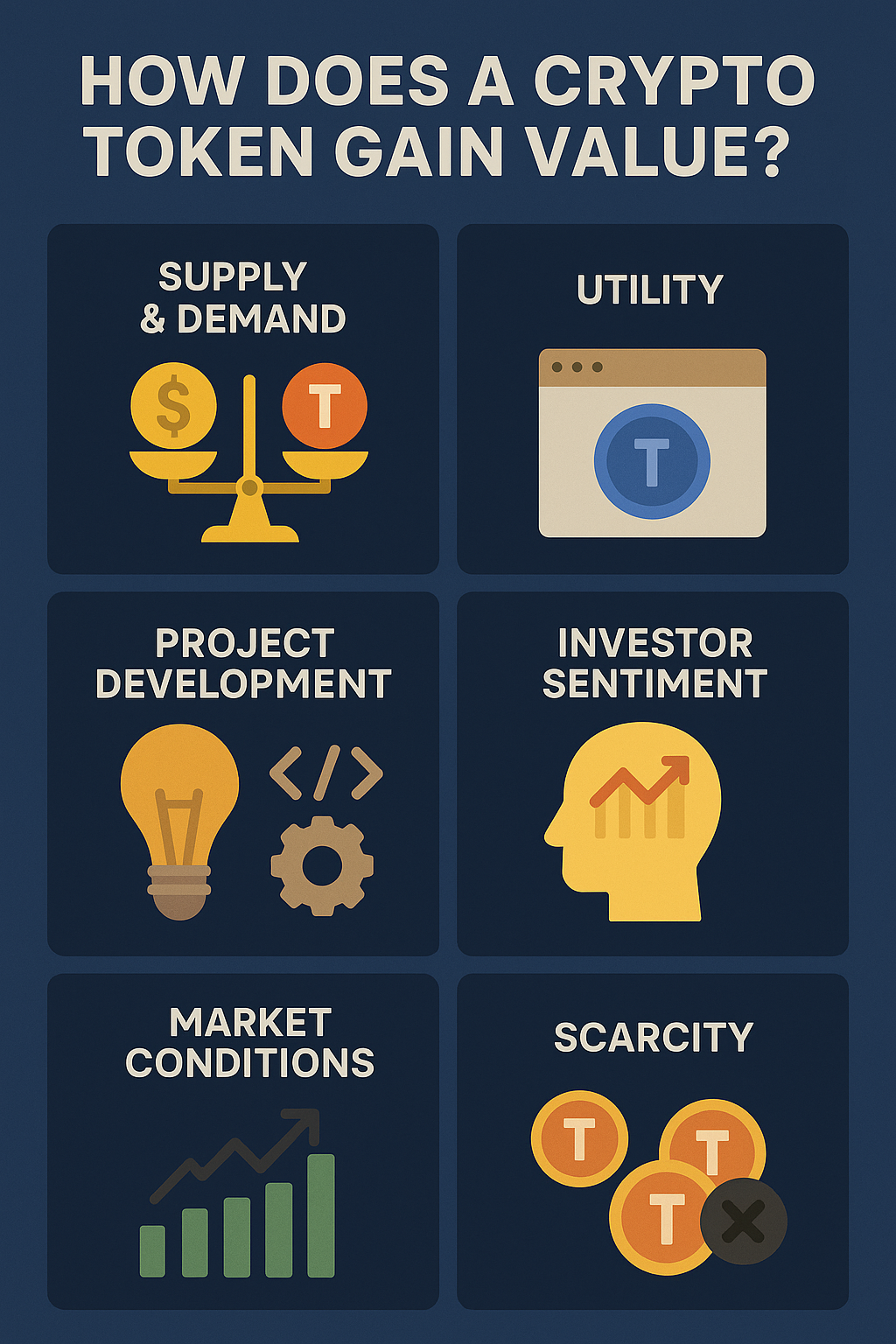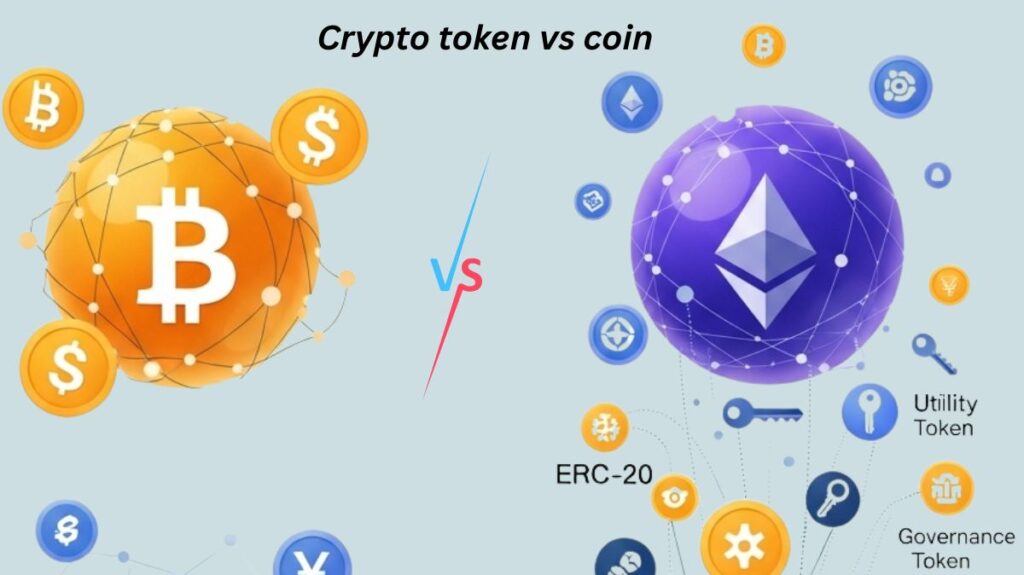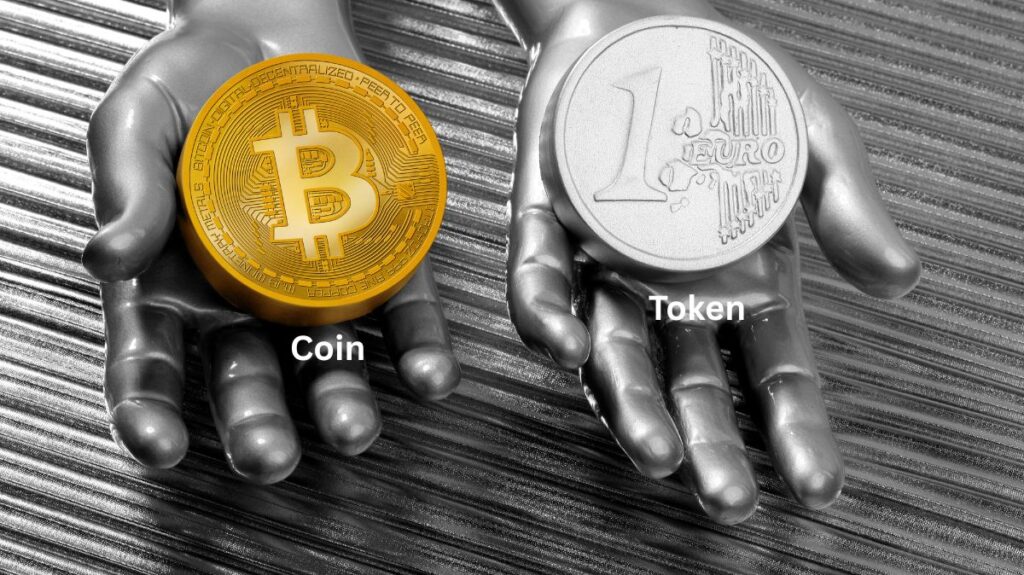How does a crypto token gain value

Supply, demand, utility, and market sentiment determine cryptocurrency token prices. Increased demand and limited supply might raise prices. Utility in decentralized finance (DeFi) applications and as a medium of trade is also important. News, social media, and market movements can affect short-term prices.
Factors Affecting Crypto Token Value
- Compared to tokens with few uses or low adoption rates, those with broad acceptance and usage have higher prices. Transaction acceptance and value storage boost a token’s worth over time.
- Technological Advancement: Unique tokens or those supported by cutting-edge technologies may attract investors, increasing their value.
- Security flaws or development delays could harm token prices.
- Positive or negative investor sentiment affects purchasing or selling pressure.
- Regulatory Changes: Government regulations may affect cryptocurrencies‘ legitimacy and prices.
- Integration with Current Systems: Integrating financial systems or sectors may increase demand.
- Total value is market capitalization, which is price times supply.
Future Prospects the token ecosystem is continually changing and might effect supply chains, real estate, governance, traditional finance (tokenization of assets, fractional shares), and identity management. Digital tokens will grow in importance in technology and finance. However, caution and trend and regulation studies are essential.
Real-World Use Cases
Cryptocurrency tokens have spread outside of the digital sphere to enable a number of useful applications:
- Asset tokenization converts commodities, real estate, and artwork into blockchain tokens for faster transferability, liquidity, and fractional ownership.
- Bitcoin tokens can be used by supply chain management systems to verify item validity, origin, and movement. Efficiency, fraud minimization, and transparency enhance luxury, pharmaceutical, and food industries.
- Voting Systems: Documenting each vote as a token transaction makes voting transparent, safe, and impermeable.
- Crypto tokens can be used to create loyalty points and incentive systems that improve platform and corporate interoperability. These tokens can be earned, exchanged, or used for a variety of goods, services, or savings without restriction.
- Online Gaming Assets: One of the most well-liked applications for cryptocurrency tokens is the gaming and virtual economy sectors. Players can safely and openly own, trade, and sell in-game items with the help of cryptocurrency tokens. A game’s virtual world may offer exclusive commodities, characters, currency, or real estate.
- Decentralized Lending and Borrowing (DeFi): Cryptocurrency tokens allow anybody to borrow assets by providing collateral or lend digital assets to earn interest. These platforms operate independently of banks and financial institutions, making loans and borrowing more accessible and transparent.
- Automated Market Makers (AMMs): AMMs use cryptocurrency tokens to decentralize blockchain trade. They offer liquidity pools so users can trade cryptocurrency without centralized exchanges. To maintain liquidity for traders, AMMs generate token values using supply and demand algorithms.
- Identity management: Decentralized identity solutions that make use of token systems.
- Micropayments: Offering a productive means of carrying out minor transactions.
Profits from Investment
- Efficiency and liquidity: Cryptocurrency exchanges trade tokens 24/7 providing rapid purchases and trades.
- Investors can invest in illiquid assets through tokenization.
- Large Returns: Dividends, staking incentives, and price rise can benefit investors.
- Opportunities for Diversification: Cryptocurrency tokens are special assets that differ from traditional financial markets.
- Blockchain-based tokens ensure transaction immutability and openness, establishing a safe environment.
- Financial Inclusion: Offer alternatives to traditional banking.
Problems And issues
- Market Volatility: Cryptocurrency token values fluctuate rapidly. Volatility puts investors at danger of sudden and large losses. Technology, law, investor opinion, and market demand affect bitcoin token values.
- Lack of Regulation: Their decentralized structure increases fraud, scams, hacking, and market manipulation. Unless exempted, tokens may be considered securities by regulatory organizations like the US SEC and require registration.
- Complex smart contracts and blockchain networks are technology risks for cryptocurrency tokens. Although open and immutable, these technologies pose risks. Poor smart contract programming can change or steal transactions or money.
- The changing regulatory climate affects token value, use, and legality by jurisdiction.
- High-energy bitcoin mining hurts the environment. Mining uses a lot of energy because complex math problems demand a lot of computation. Carbon footprint and environmental impact of bitcoin mining are challenges.
- Fraudsters: Scammers may look as legitimate businesses. Safe exchanges, research teams, whitepapers, and no aggressive social media marketing or exaggerated promises are best for investors.
Storage Options
There are several kinds of digital wallets where cryptocurrency tokens can be safely kept:
- Hardware wallets are tangible objects that offer improved protection against internet attacks by storing private keys offline.
- Paper wallets provide “cold storage” (offline) security by printing public and private keys on paper.
- Software wallets are computer or mobile applications.
List of crypto coins vs tokens
- Tokens rely on pre-existing blockchains rather than their own. They need a coin’s principal blockchain to work.
- Even while cryptocurrencies like Bitcoin are digital currencies, trading platforms, or storage of value, crypto tokens serve a purpose other than money. They can represent virtual assets, voting rights, service or platform access, or item ownership.
- The process of creating a currency entails starting from scratch and developing a whole blockchain, which takes a lot of time, effort, and technical know-how, frequently from “core developers.” On the other hand, developing crypto tokens entails creating smart contracts on an already-existing blockchain, which is typically more useful and requires fewer resources until creating a new blockchain is practicable.
- Worth Derivation: A token’s worth comes from its original blockchain or a physical item. Bitcoin is both a coin and a store of value because it holds its worth.

Crypto token vs coin
| Feature | Crypto Coin | Crypto Token |
|---|---|---|
| Definition | A digital currency that runs on its own blockchain | A digital asset built on an existing blockchain |
| Blockchain | Has its own native blockchain | Runs on another blockchain (e.g., Ethereum) |
| Examples | Bitcoin (BTC), Ethereum (ETH), Litecoin (LTC) | Uniswap (UNI), Chainlink (LINK), Shiba Inu (SHIB) |
| Function | Mainly used as money/payment | Used for specific purposes like governance, access, or utility |
| Creation | Requires building a blockchain from scratch | Created using smart contracts on existing blockchains |
| Transaction Fees | Paid in the coin itself (e.g., ETH for Ethereum) | Paid in the native coin of the blockchain it’s on |
| Use Cases | Currency, store of value, network security | Access services, voting, staking, rewards, etc. |
| Complexity | More complex to develop and maintain | Easier and cheaper to create and manage |

